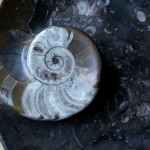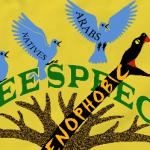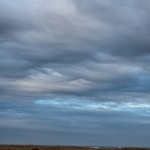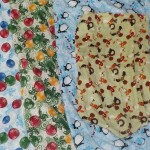I really enjoyed last month’s guest post by Jake Diebolt on The Importance of Material Culture (or Why Stuff Matters.) Because of our culture’s tendency to over-consume resources of all sorts, materialism has gotten a pretty bad rap. And to a great extent it deserves it. We’re urged to buy more and more stuff, whether we really need it or not. Jake, on the other hand, wisely advocates for quality over quantity:
But when we degrade the value of all material goods, we degrade the humanity of our fellows. Every single item you see around you has been built by someone. Someone spent time and effort to make it. In many cases, they have tried their best to make it well. Given the opportunity, most people will try and make something beautiful…Consuming deliberately does not mean basing your entire identity on the things you buy. But it does mean acknowledging what the things you buy mean, what they say to others and how they impact the world around you. I would say that buying fewer things, and enjoying them more,is probably better for you than buying a lot of stuff that just takes up space.
The blanket dismissal of “materialism” in a black and white fashion often betrays a simplistic, unexamined reaction to very real problems. It is true that we create, use, and waste a lot of resources; no environmentalist will deny that. But as was pointed out in the above post, a reasonable amount of material goods are necessary and even desirable, not just as quick acquisitions, but carriers of personal and cultural expression. To dismiss all material goods as “materialistic” is short-sighted.
There’s a parallel that I have frequently seen among many religions: the devaluing of the physical world and the exaltation of whatever spiritual reality is claimed. The phrase “we are not human beings having a spiritual experience, we are spiritual beings having a human experience” sums it up pretty well. Human life is seen only as a temporary stop on the way to enlightenment, the momentary immersion of a higher incorporeal being into a lower corporeal form. At its most benign this “spiritual is better” attitude lets people hope that there will be some better, less challenging or painful reality after death; at the other extreme you have people who want so badly for this paradise to arrive right now that they’re willing to sacrifice the entire known world in the process.
This dualistic approach is an expression of escapism from the problems of this world. For many people the promise of a future reality free of troubles helps them get through the challenges of the present. Unfortunately this often leads to a tendency to ignore problems rather than dealing with them, especially on a wider societal and/or global scale. After all, if you can escape this world through meditation, if you have a perfect Heaven waiting for you as long as you play nice, why even bother investing time in making this world better? Some people check out mentally decades before they check out physically. Yes, this world is full of challenges, and there are plenty of people who have had neither the privileges nor the opportunities that I enjoy. Perhaps it’s easier for me to be able to immerse myself in this world because I have my basic needs covered–food to eat, a place to live, a direction to go in. So maybe I can understand some escapism through the promise of a supposedly better world out there, one that doesn’t have pain or suffering.
But they’re missing out on the only reality we can absolutely bank on having: the very real, very human, and sometimes messy physical lives we each get to live, challenges, suffering and all. Part of why I’ve shifted my path to naturalist paganism is because my focus has become increasingly entrenched in this world. I don’t know what will happen after I die. Maybe there’s an afterlife; maybe there’s nothing. At this point in my life I don’t worry overmuch about it. What I do know is that I have been fortunate enough to enjoy thirty-six years here so far, and with luck and good health I’ll be able to enjoy at least thirty-six more.
The more I enjoy the moment, and the fact that each morning I wake up to a shiny new day full of possibilities, the more I’m okay with the fact that it’s a limited-time offer. In the past few years, as I’ve become more immersed in exploring this world top to bottom, ground to sky, not only have I felt more gratitude for this unique opportunity, but I’ve also come to be more at peace with how temporary it is. And I’m not sad about the idea that this may be all I get. I’ve had a pretty fantastic run of it so far. I’ve hiked many amazing trails, and created all sorts of artwork, and had books published, and met the craziest, most wonderful bunches of creative folks from Pittsburgh to Portland. I’ve had great health other than a few blips here and there, allowing me to enjoy my days all the more.
I’ve also been through some pretty tough times, too. I’ve been unhappily married and divorced, and I carry scars on my heart from loves lost in the past. I’ve struggled with over two decades of Generalized Anxiety Disorder sustained from a childhood full of bullying, among other traumas. There have been other challenges I won’t go into here; suffice it to say there have been times when it was hard to feel joy at the sight of Mt. Hood on the horizon or a flutter of pigeons rising up from the grass.
But that’s the secret of it all: these things exist whether I appreciate them in the moment or not. They don’t need my permission to exist, or to carry on their ancient cycles–volcanoes and uplift, wingbeats and moulting, photosynthesis and cell division. Through it all, no matter how bad my day is, these processes continue, dependable and true. I can step outside of my cares for a little while when I take the time to examine the green shades of a leaf and imagine the chloroplasts industriously turning sunlight into sugars and tiny stoma breathing in and out. My worries seem miniscule next to the heartbeat of the Pacific Ocean. But I’m still immersed in the here and now, not some mystical alternate reality, and my appreciation of tangible leaves and waves just makes me more dedicated to their preservation than ever.
That is what is most sacred to me: this world, this moment, right here, right now. I have no guarantee of any world but this one. And it gives so very much to me in so many ways; to take it for granted is to devalue all the miracles and wonders it has to offer. When someone says some Higher Power shaped me by hand and created this world only for me and my fellow humans to enjoy, how short-sighted it is! Earth does not revolve around us; we are merely one species out of the many passengers it carries, and what a glorious array we all are, together! I find much more appreciation and joy in the long process of evolution from tiny motes in ancient seas to today’s biological diversity than I do in a story that skips all but the very last sentence: “And then there were humans.”
So I say: let this world be sacred, too. Let us not see it as a flawed version of some paradise; let us not seek to leave it too soon or–worse yet–tear it down in the hopes of manifesting its perfect cousin. Let it be itself in all its “splendour and travails”, as Beston said.
















